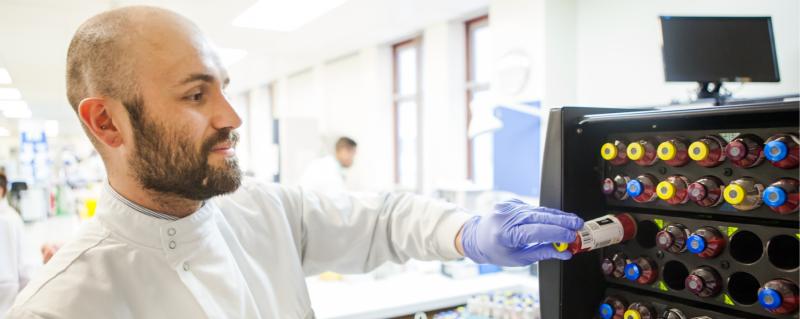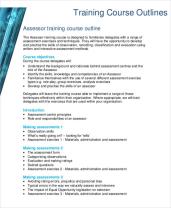How to become a specialist in microbiology?
Becoming a specialist in microbiology typically involves a combination of education, training, and practical experience. Here's a general pathway to become a specialist in microbiology:
1. Educational Requirements:
a. Bachelor's Degree:
- Start with a bachelor's degree in microbiology, biology, biochemistry, or a related field. Coursework should cover microbiology, molecular biology, genetics, and other relevant subjects.
b. Gain Laboratory Experience:
- Participate in laboratory work and research projects during your undergraduate studies to gain hands-on experience in microbiological techniques and methods.
2. Advanced Education:
a. Master's Degree (Optional):
- Pursue a master's degree in microbiology or a related field. This can enhance your knowledge and research skills. Some positions in microbiology may require or prefer candidates with a master's degree.
b. Doctoral Degree (Ph.D.):
- For specialized roles and research positions, pursue a Ph.D. in microbiology. A Ph.D. involves original research, a dissertation, and advanced coursework. This is often a requirement for academic and research positions.
3. Specialization:
a. Choose a Microbiology Specialty:
- Microbiology has various subfields, such as medical microbiology, environmental microbiology, industrial microbiology, and more. Choose a specialization based on your interests and career goals.
b. Research Focus:
- Develop a specific focus within your chosen specialization. This could involve studying a particular type of microorganism, researching specific diseases, or exploring applications of microbiology in a particular industry.
4. Gain Practical Experience:
a. Internships and Research Opportunities:
- Seek internships or research opportunities in laboratories, healthcare settings, or industries where microbiology is applied. Practical experience is crucial for developing skills and building a strong resume.
b. Collaborate on Research Projects:
- Collaborate with experienced researchers, professors, or industry professionals on research projects. This can provide exposure to cutting-edge research and methodologies.
5. Networking and Professional Development:
a. Join Professional Organizations:
- Become a member of microbiology-related professional organizations such as the American Society for Microbiology (ASM), Society for Applied Microbiology (SfAM), or other relevant groups. Attend conferences and networking events.
b. Stay Informed:
- Stay updated on advancements in microbiology by reading scientific journals, attending conferences, and participating in webinars. Continuous learning is essential in a rapidly evolving field.
6. Certification (Optional):
- Consider obtaining relevant certifications. While certification may not be required for all positions, it can enhance your credentials. For example, the ASM offers certifications such as the Certified Microbiologist (CM) designation.
7. Job Search and Career Development:
a. Apply for Positions:
- Begin your job search for positions that align with your specialization and career goals. Look for opportunities in research institutions, universities, healthcare, pharmaceutical companies, or environmental agencies.
b. Consider Postdoctoral Research:
- Engage in postdoctoral research to further deepen your expertise and increase your competitiveness for advanced positions in academia or industry.
8. Academic Career (Optional):
- If interested in academia, pursue a faculty position at a university. This may involve gaining teaching experience, publishing research, and obtaining tenure.
9. Continued Professional Development:
- Stay engaged in continuous learning, attend workshops, and seek opportunities for professional development throughout your career.
Remember that the specific requirements and pathways may vary based on your location, the institutions you choose, and the specific area of microbiology you want to specialize in. Always check the specific requirements of the positions or institutions you are interested in.
What are the steps to pursue a career as a microbiology specialist?
The path to becoming a microbiology specialist involves multiple steps, requiring both education and practical experience. Here's a breakdown of the key stages:
Education:
- Earn a high school diploma: Completing high school coursework in science, particularly biology and chemistry, provides a strong foundation in scientific principles.
- Pursue a bachelor's degree: A Bachelor of Science (B.S.) degree in microbiology, biology, or a related field is the minimum requirement for most microbiology specialist roles. Look for programs with coursework in microbiology, biochemistry, immunology, molecular biology, and genetics.
- Consider graduate studies: A Master of Science (M.S.) degree in microbiology or a related field can enhance your knowledge and open doors to more specialized positions. Consider research-oriented programs if you're interested in academic or research roles.
Experience and Skill Development:
- Gain laboratory experience: Seek internships, volunteer opportunities, or entry-level lab technician positions in research labs, hospitals, or biotechnology companies. This hands-on experience is crucial for developing practical skills in manipulating microorganisms, conducting experiments, and analyzing data.
- Develop relevant skills: Enhance your skills in microscopy, culturing techniques, biochemical assays, molecular biology techniques, and data analysis software. Some employers may prefer candidates with proficiency in specific technical skills like DNA sequencing or bioinformatics.
- Build professional network: Attend conferences, workshops, and professional meetings related to microbiology. Connect with other professionals in the field to learn about career opportunities and gain valuable insights.
Licenses and Certifications:
- Consider relevant certifications: While not always mandatory, certifications like the Registered Microbiologist (M) credential from the American Society for Microbiology (ASM) can demonstrate your competence and expertise, potentially enhancing your career prospects.
- Check state licensing requirements: Some states may require state licensure for certain microbiology specialist roles. Research the specific requirements in your desired state or work location.
Additional tips:
- Focus on transferable skills: Develop strong communication, teamwork, critical thinking, and problem-solving skills, as they are valuable across various microbiology careers.
- Stay updated with advancements: The field of microbiology constantly evolves. Stay informed about the latest research and technological developments to maintain your knowledge and skills.
- Tailor your resume and cover letter: Highlight your relevant skills, experience, and educational background when applying for positions. Showcase your passion for microbiology and demonstrate your understanding of the specific role and its requirements.
Remember, the specific steps may vary depending on your chosen specialization, desired career path, and location. Research options, seek guidance from experienced professionals, and tailor your journey to achieve your aspirations in the exciting field of microbiology.
I hope this information provides a helpful roadmap for pursuing a career as a microbiology specialist. Feel free to ask if you have any further questions about specific aspects of the journey, required skills, or potential career paths within the field.












